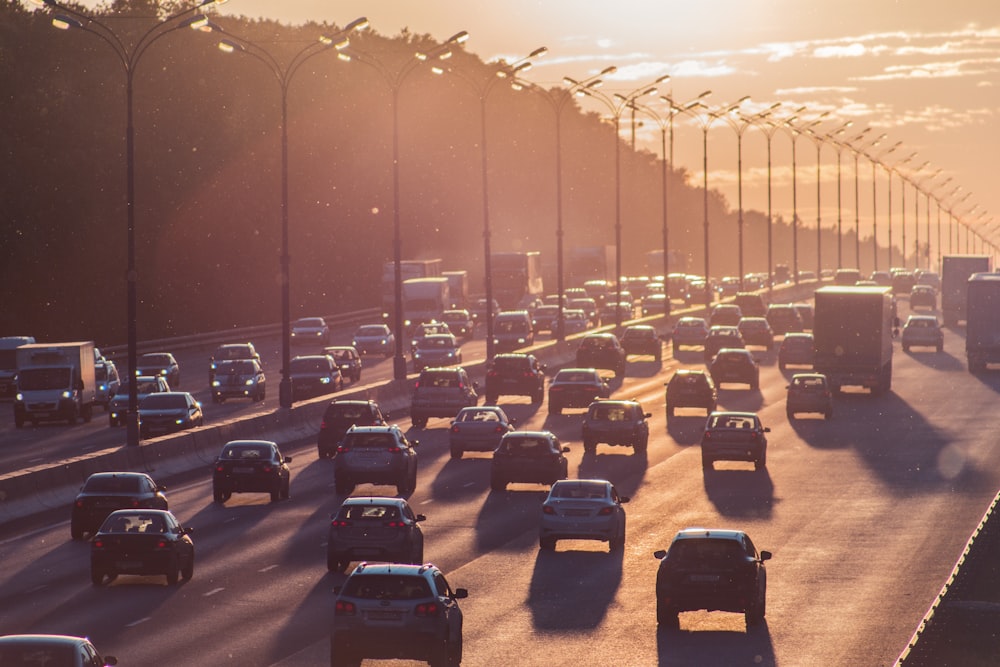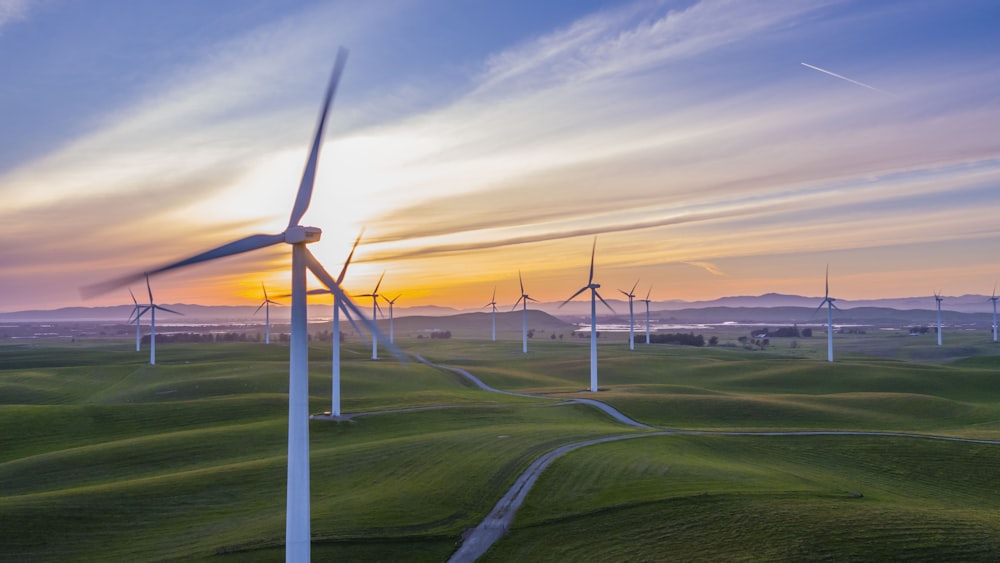Life after Coronavirus: building a better world out of tragedy
KF - Writer
Coronavirus has brought the globe to a standstill, highlighting the strengths and weaknesses (or complete lack) of contingency plans the world over. While most businesses have taken a large financial hit as a result of the pandemic, some online or quickly adapted businesses are thriving. Amidst the chaos and general uncertainty of our new every day, it must be admitted that there are some positive lessons we can all learn from this (hopefully) once in a lifetime experience. Be it that some companies have discovered their online adaptability; or a sense of community between neighbours, or even making some of the most self-entitled and spoiled nations look around and appreciate all that they have - the positives are out there amongst the sadness and loss.
One of the positives of this pandemic is the reclamation of empty cities and unpolluted waterways by wildlife. Levels of air pollution have reduced by as much as 50% in some cities as transport has become severely restricted, and water systems are visibly clearer as discharge from boat traffic has plummeted. Pictures of fish returning to canals in Venice, of mountain goats wandering down the streets of Llandudno and Japanese deer venturing into cities in search of the tourist food usually found in the parks have all flooded the internet. While this is by no means an immediate fix to plummeting wildlife populations and a millennium of human encroachment into animal habitat, it is food for thought.
The global return to business as usual is being debated by those who favour getting everything back to normal as quickly as possible, and those who believe this will cause further damage to the global economy. Whichever approach is decided on will likely show little regard for the environment, seemingly the last priority at all times. However, we cannot ignore that through fear and grief, we have been given an unprecedented opportunity to slow down our day to day lives and examine and adapt the fundamental functions of our businesses, transport, food habits and supply chains.

Workers who have always been told their job simply cannot be done remotely are now working productively from home, saving money on fuel and childcare as well as transport emissions. Serial food wasters and poor meal planners have been forced to think about how much food they can access and how far it will stretch as limits are put in place on bulk buying and going out to buy snack foods. People who haven’t gone for a walk let alone done an hour of exercise in years are suddenly valuing the precious time they are allowed outside. Close but lazy families like my own are now having better communication than they previously were as the need to check up on people has risen. Community heroes have risen as some commercial kitchens remain operational to provide free meals to NHS staff or vulnerable people. Neighbours who had never spoken before are now walking pets and delivering shopping for those who cannot leave their homes.
I don’t expect sweeping government changes when the pandemic is over, and all is safe again. I expect the fiscally minded Conservatives to focus on normality and stabilising the economy the best that they can because -say what you will about them- normality will be desperately needed. So, I don’t expect those sweeping government changes, but I do hope that individuals and businesses will take this experience in and permanently re-evaluate their practices. I hope we can look at the adaptations we have had to make over this period and use them to model good practices going forward.

It will be very difficult to deny the success of home working when faced with months of proof that a remote workforce can do its job just as well as an office based one. If more people are allowed to work remotely, we could put a real dent in our carbon emissions, even more so if remote working convinces more homes to reduce the number of cars they own. I’d like to think it will be equally difficult for people to go back to using their cars for many unnecessary trips a week. Having to plan so well over this period will hopefully instil good habits of appropriate meal planning and adapting what’s in the cupboard rather than popping out in the car for a single forgotten ingredient or snack. Many restaurants and supermarkets have donated their surplus fresh ingredients and stock to the vulnerable. There are already some apps that allow people to find and take unsold goods from selected stores like fresh fruit about to pass its sell by date or baked goods that won’t last more than a day. Why couldn’t it be normal practice for all restaurants and cafes to give away anything unsold to the homeless or struggling families? Excess cooking oil from restaurants could be collected every day to power biofuel vehicles if only someone chose to start doing this.
If we can maintain this sudden widespread appreciation for our outside spaces, the amazement at seeing the environment so pristine and the return of wild species then maybe more people will want to protect our green spaces and the animals who inhabit them.
The list seems to go on and on, and none of this is new information. We all know that all of this could be done, and in some places in some variety, it is being done. Our new challenge is to make these positive changes permanent and widespread until they become our new global business as usual.
References
https://www.standard.co.uk/news/world/positive-impact-environment-coronavirus-lockdown-a4404751.html
https://news.un.org/en/story/2020/04/1061082
https://www.independent.co.uk/environment/coronavirus-economy-green-equality-climate-change-covid-19-a9430616.html
https://www.bbc.com/future/article/20200326-covid-19-the-impact-of-coronavirus-on-the-environment
https://www.theguardian.com/environment/2020/mar/27/coronavirus-uk-lockdown-big-drop-air-pollution
Photo by Alexander Popov on Unsplash
Photo by RawFilm on Unsplash
Coronavirus has brought the globe to a standstill, highlighting the strengths and weaknesses (or complete lack) of contingency plans the world over. While most businesses have taken a large financial hit as a result of the pandemic, some online or quickly adapted businesses are thriving. Amidst the chaos and general uncertainty of our new every day, it must be admitted that there are some positive lessons we can all learn from this (hopefully) once in a lifetime experience. Be it that some companies have discovered their online adaptability; or a sense of community between neighbours, or even making some of the most self-entitled and spoiled nations look around and appreciate all that they have - the positives are out there amongst the sadness and loss.
One of the positives of this pandemic is the reclamation of empty cities and unpolluted waterways by wildlife. Levels of air pollution have reduced by as much as 50% in some cities as transport has become severely restricted, and water systems are visibly clearer as discharge from boat traffic has plummeted. Pictures of fish returning to canals in Venice, of mountain goats wandering down the streets of Llandudno and Japanese deer venturing into cities in search of the tourist food usually found in the parks have all flooded the internet. While this is by no means an immediate fix to plummeting wildlife populations and a millennium of human encroachment into animal habitat, it is food for thought.
The global return to business as usual is being debated by those who favour getting everything back to normal as quickly as possible, and those who believe this will cause further damage to the global economy. Whichever approach is decided on will likely show little regard for the environment, seemingly the last priority at all times. However, we cannot ignore that through fear and grief, we have been given an unprecedented opportunity to slow down our day to day lives and examine and adapt the fundamental functions of our businesses, transport, food habits and supply chains.

Workers who have always been told their job simply cannot be done remotely are now working productively from home, saving money on fuel and childcare as well as transport emissions. Serial food wasters and poor meal planners have been forced to think about how much food they can access and how far it will stretch as limits are put in place on bulk buying and going out to buy snack foods. People who haven’t gone for a walk let alone done an hour of exercise in years are suddenly valuing the precious time they are allowed outside. Close but lazy families like my own are now having better communication than they previously were as the need to check up on people has risen. Community heroes have risen as some commercial kitchens remain operational to provide free meals to NHS staff or vulnerable people. Neighbours who had never spoken before are now walking pets and delivering shopping for those who cannot leave their homes.
I don’t expect sweeping government changes when the pandemic is over, and all is safe again. I expect the fiscally minded Conservatives to focus on normality and stabilising the economy the best that they can because -say what you will about them- normality will be desperately needed. So, I don’t expect those sweeping government changes, but I do hope that individuals and businesses will take this experience in and permanently re-evaluate their practices. I hope we can look at the adaptations we have had to make over this period and use them to model good practices going forward.

It will be very difficult to deny the success of home working when faced with months of proof that a remote workforce can do its job just as well as an office based one. If more people are allowed to work remotely, we could put a real dent in our carbon emissions, even more so if remote working convinces more homes to reduce the number of cars they own. I’d like to think it will be equally difficult for people to go back to using their cars for many unnecessary trips a week. Having to plan so well over this period will hopefully instil good habits of appropriate meal planning and adapting what’s in the cupboard rather than popping out in the car for a single forgotten ingredient or snack. Many restaurants and supermarkets have donated their surplus fresh ingredients and stock to the vulnerable. There are already some apps that allow people to find and take unsold goods from selected stores like fresh fruit about to pass its sell by date or baked goods that won’t last more than a day. Why couldn’t it be normal practice for all restaurants and cafes to give away anything unsold to the homeless or struggling families? Excess cooking oil from restaurants could be collected every day to power biofuel vehicles if only someone chose to start doing this.
If we can maintain this sudden widespread appreciation for our outside spaces, the amazement at seeing the environment so pristine and the return of wild species then maybe more people will want to protect our green spaces and the animals who inhabit them.
The list seems to go on and on, and none of this is new information. We all know that all of this could be done, and in some places in some variety, it is being done. Our new challenge is to make these positive changes permanent and widespread until they become our new global business as usual.
References
https://www.standard.co.uk/news/world/positive-impact-environment-coronavirus-lockdown-a4404751.html
https://news.un.org/en/story/2020/04/1061082
https://www.independent.co.uk/environment/coronavirus-economy-green-equality-climate-change-covid-19-a9430616.html
https://www.bbc.com/future/article/20200326-covid-19-the-impact-of-coronavirus-on-the-environment
https://www.theguardian.com/environment/2020/mar/27/coronavirus-uk-lockdown-big-drop-air-pollution
Photo by Alexander Popov on Unsplash
Photo by RawFilm on Unsplash



Comments
Post a Comment